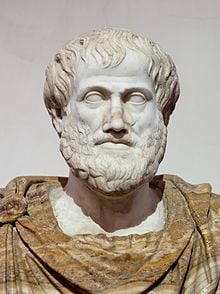You have /5 articles left.
Sign up for a free account or log in.

 In Iowa on Monday, Senator Marco Rubio (at left, with Aristotle at right), a candidate for the Republican presidential nomination, spoke about his vision for reforming higher education, and encouraged more people to enter vocationally oriented programs. Rubio said it was important for students to know their chances at good jobs after finishing various programs.
In Iowa on Monday, Senator Marco Rubio (at left, with Aristotle at right), a candidate for the Republican presidential nomination, spoke about his vision for reforming higher education, and encouraged more people to enter vocationally oriented programs. Rubio said it was important for students to know their chances at good jobs after finishing various programs.
"So you can decide if it's worth borrowing $50,000 to major in Greek philosophy," The Waterloo Cedar Falls Courier reported Rubio as saying. "Because after all, the market for Greek philosophers has been very tight for 2,000 years." Greek philosophy seems to be Rubio's go-to example -- see this article from June. Or this one from March. Or this one from February.
Inside Higher Ed wondered what philosophers might make of all of these comments. Amy E. Ferrer, executive director of the American Philosophical Association, responded via email. "Rubio's refrain about the value of philosophy is unfortunate -- and misinformed," she said. "Philosophy teaches many of the skills most valued in today's economy: critical thinking, analysis, effective written and verbal communication, problem solving, and more. And philosophy majors' success is borne out in both data -- which show that philosophy majors consistently outperform nearly all other majors on graduate entrance exams such as the GRE and LSAT, and that philosophy ties with mathematics for the highest percentage increase from starting to midcareer salary -- and anecdotal evidence indicating that philosophy and other humanities majors are increasingly successful and sought after in the business and technology sectors.
"Examples of philosophy majors' success in the business world include Overstock.com CEO Patrick Byrne, Flickr co-founder Stewart Butterfield and Carly Fiorina, former Hewlett-Packard CEO and one of Rubio's rivals for the Republican presidential nomination."








